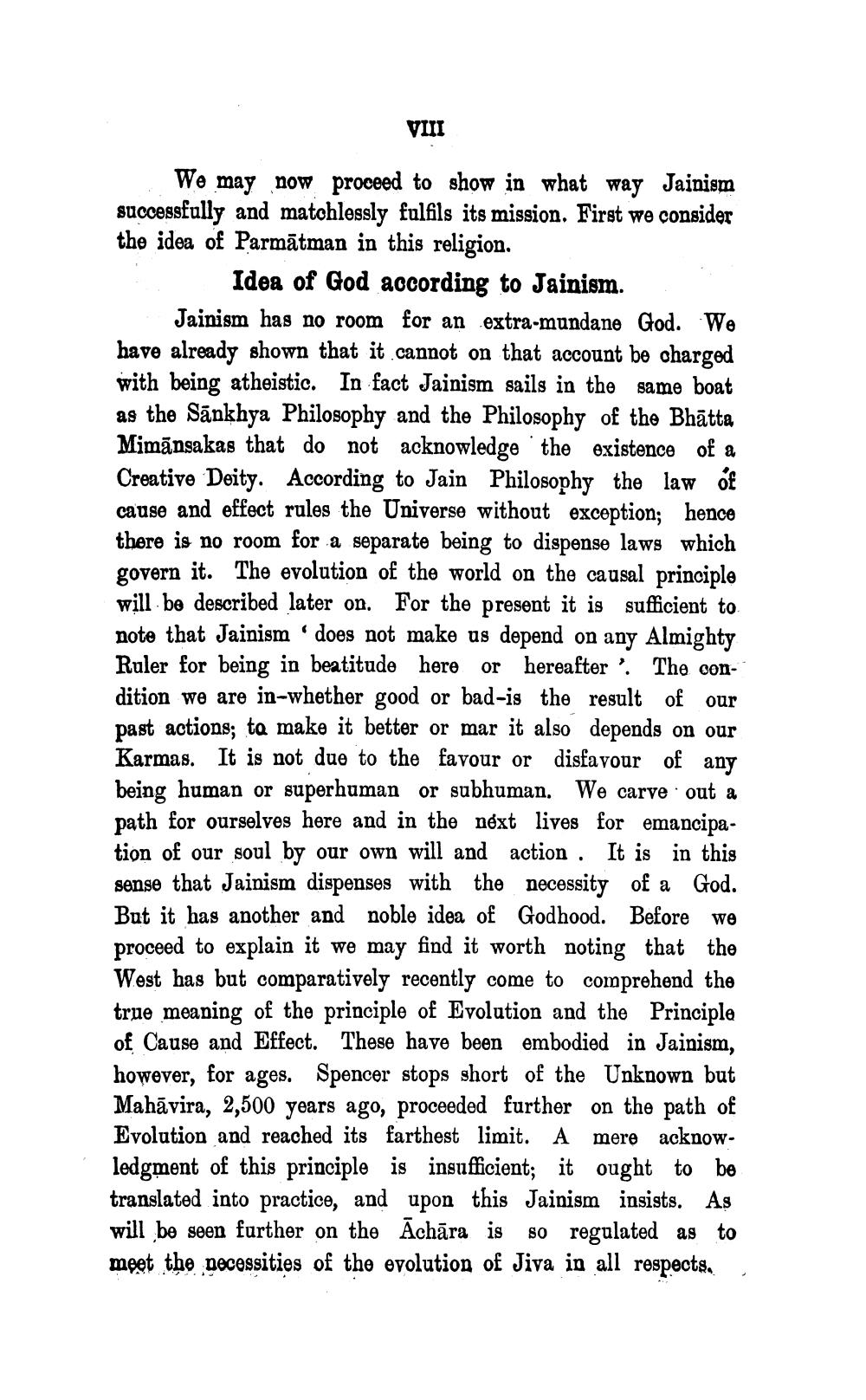________________
VIII
We may now proceed to show in what way Jainism successfully and matchlessly fulfils its mission. First we consider the idea of Parmatman in this religion.
Idea of God according to Jainism.
"
Jainism has no room for an extra-mundane God. We have already shown that it cannot on that account be charged with being atheistic. In fact Jainism sails in the same boat as the Sankhya Philosophy and the Philosophy of the Bhātta Mimansakas that do not acknowledge the existence of a Creative Deity. According to Jain Philosophy the law of cause and effect rules the Universe without exception; hence there is no room for a separate being to dispense laws which govern it. The evolution of the world on the causal principle will be described later on. For the present it is sufficient to note that Jainism does not make us depend on any Almighty Ruler for being in beatitude here or hereafter'. The condition we are in-whether good or bad-is the result of our past actions; to make it better or mar it also depends on our Karmas. It is not due to the favour or disfavour of any being human or superhuman or subhuman. path for ourselves here and in the next lives for emancipation of our soul by our own will and action. It is in this sense that Jainism dispenses with the necessity of a God. But it has another and noble idea of Godhood. Before we proceed to explain it we may find it worth noting that the West has but comparatively recently come to comprehend the true meaning of the principle of Evolution and the Principle of Cause and Effect. These have been embodied in Jainism, however, for ages. Spencer stops short of the Unknown but Mahavira, 2,500 years ago, proceeded further on the path of Evolution and reached its farthest limit. A mere acknowledgment of this principle is insufficient; it ought to be translated into practice, and upon this Jainism insists. As will be seen further on the Āchāra is so regulated as to meet the necessities of the evolution of Jiva in all respects.
We carve out a




